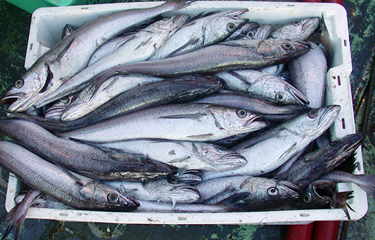A recent study conducted by Oregon State University, funded by Pacific Seafood, found that gelatin in the skin of Pacific hake (also known as whiting) can prevent skin-wrinkling.
The study, published in Marine Drugs, found Pacific whiting skin “reactivated to a certain level the collagen synthesis pathway that had been suppressed by UV radiation, prevented activation to a certain level of the collagen degradation pathway that had been accelerated by UV radiation, [and] promoted additional antioxidant activity."
Antioxidants are substances that can prevent or slow damage to cells and promote additional anti-inflammatory effects.
Oregon State University Assistant Professor Jung Kwon, the lead author of the study, has a focus on the utilization of fish skin and studies how marine organisims can benefit human health.
“Fish skins are an abundant resource that we already know have valuable nutritional properties,” Kwon said in the press release. “But we wanted to find out what additional potential value might be found in something traditionally considered a byproduct."
The study looked into the molecular pathways that contribute to the wrinkling of skin and found that the wrinkling of skin is caused by chronic exposure to ultraviolet light, causing the collagen in the skin to deteriorate. Kwon said the study found treatment with Pacific hake skin could inhibit some of that damage and prevent wrinkling, though she said further testing is needed using animal models, as the first results were obtained through a human cell-model system.
“We saw some potential with a positive response in the cell-model system," Kwon said. "This gives us good evidence to take those next steps."
Photo courtesy of NOAA







